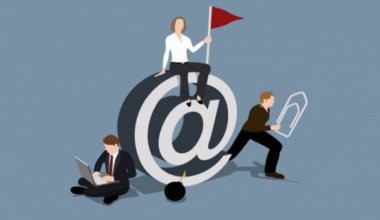The Gazeta Prawna daily paper published commentaries of practicing lawyers on the high-profile decision of the Court of Justice of the European Union of 8 September 2016 in case C-160/15 GS Media BV. The PrawoAutorskie.pl lawyers were also requested to provide their answers; Janusz Piotr Kolczyński, attorney-at-law, presented his standpoint.
In this case, GS Media published a link on its website which referred to another website where – without the approval of Sanoma (the publisher of Playboy monthly magazine) – photos made for Playboy were presented; the photos were made available on the website before their publication in the magazine.
In the opinion issued with respect to the case, the Advocate General Melchior Wathelet postulated a general absence of liability of the party making the link available for publication of illegal content, not made previously available to the public upon the approval of the authorised party.
However, the Court of Justice did not concede to the Advocate General’s opinion and decided that publication, on the Internet site, of a link referring to work protected by copyright and published without permission of the author on another Internet site does not constitute making the work publicly available, yet only in case when the person publishing the link is not guided by gainful motives and has no knowledge about the fact that publishing such work is contradictory with the law.
J.P. Kolczyński, attorney-at-law, assessed that the Court of Justice went too far in its judgment, introducing a certain preventive obligation of verifying the link by the entrepreneur when the publication takes place for gainful purposes. Kolczyński decided that this was in contrast to the directive on the harmonisation of certain aspects of copyright and related rights in the information society (2001/29/EC) and the directive on electronic commerce (2000/31/EC). Kolczyński also noticed that paradoxically, the Court weakened the position of the author, simultaneously claiming that its aim was to reinforce it, due to the fact that the Court added, to the premises of work protection, a new criterion of gainful use of the work, which seems contradictory with the Berne Convention. Kolczyński believes that the judgment solidifies the controversial opinion that publishing a link is, in fact, making use of the work. Kolczyński also attracted attention to the fact that the Court of Justice did not introduce, as was claimed in some initial commentaries, the obligation of verifying the link – the follow-up control on the side of the party making the link public is its obligation, but only after attention has been drawn to the illegal character of the link. Kolczyński noted that the Court of Justice failed to clarify whether the gainful criterion refers to the situation when a party profits from maintaining its website or to the situation where the profit results from the fact of making the link available.
Source:
https://twitter.com/JPKolczynski/status/778608451987595265?lang=pl








